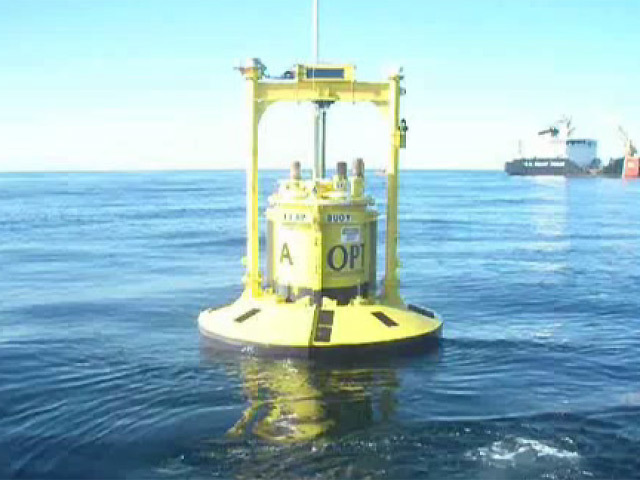
A wave energy firm aiding the fight against drug smugglers off the USA coast hopes its technology could help save millions for the oil and gas industry.
English firm Ocean Power Technologies has provided a pioneering buoy for the US navy which is tracking ships entering and leaving the waters off New Jersey.
Now the company is hoping to deploy the process for civilian operations, including helping to power unmanned offshore installations.
The company, which was exhibiting at Offshore Europe this week, launched a pilot programme with the navy before deploying the second phase of the project, which sees a string of radar and sonar sensors running along the coast.
The sensors track vessels up to 50km off the coast by their radar and propeller signatures, allowing the navy to track and stop unauthorised ships or underwater craft.
“Every ship has got it’s own signature, so you can tell what kind of vessel it is,” OPT’s UK director Paul Watson told Energy Voice.
“It’s not just defence, it’s drug running, those kind of things, which they now use submarines to run drugs for.”
The buoys generate a constant 150kw of wave energy and store it in an onboard battery, which is then used to power devices above or below the surface of the sea.
OPT are now in talks with oil and gas industry firms over potential applications of the device in the North Sea – such as providing power for unmanned platforms. Large scale versions of its device have already been tested in the Cromarty Firth.
“One of the things we’re looking at is diesel replacement for unmanned platforms,” said Watson.
“What we’re not trying to do is replace those generators, what we’re trying to do is use those generators more efficiently.
“We connect one of these buoys up, so it’s not using the generator 100% of the time, it could be using it 25% of the time. Not only does it give you a power backup in case the generator fails and you get to it in rough weather, but you don’t have to send a ship to refuel it four times a year, it’s just once a year.”
Military budgets in Europe have ruled out deploying the device in a similar fashion to its US counterpart, but OPT – which is looking to establish a base in the north-east of Scotland if successful – said it was looking at non-production applications for the buoy.
“We are looking at non-production areas where we can drive cost and make a massive operational benefit to operators,” said Watson.
“It’s about what operational costs we can save. When you factor that into fields, it makes it more economical.”
Recommended for you
